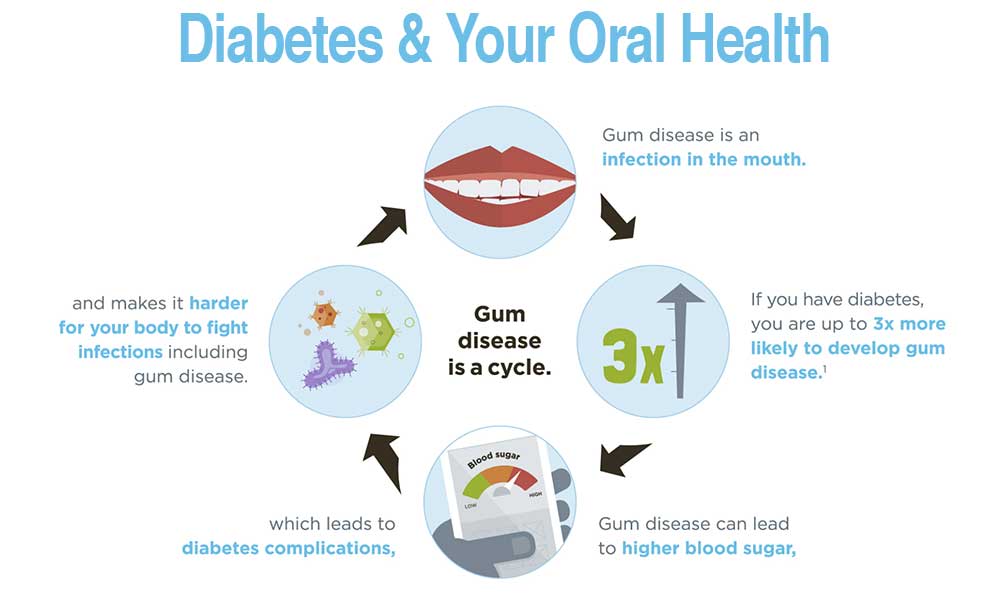Introduction:
Dental care plays a pivotal role in the overall health and well-being of individuals, and for those with diabetes, it becomes even more critical. At Krishees Multispeciality Dental Care in Pragathi Nagar, we understand the unique challenges that diabetic patients may face when it comes to oral health. In this comprehensive guide, we delve into essential tips, precautions.
Tips for Dental Care:
Regular Dental Check-ups:
- Diabetic patients should prioritize regular dental check-ups to detect and address any oral health issues promptly.
- Routine examinations allow for early intervention and prevention of complications.
Blood Sugar Control:
- Maintaining stable blood sugar levels is crucial for preventing oral health complications.
- Collaborate with healthcare professionals to manage and control blood sugar effectively.
Communication with Healthcare Providers:
Inform your dentist about your diabetes status and any medications being taken.
Ensure open communication between your dentist and primary care physician for comprehensive care.
Professional Dental Cleanings:
- Regular professional cleanings help remove plaque and tartar, reducing the risk of gum disease.
- Diabetic patients, who may be more susceptible to gum issues, benefit significantly from professional cleanings.
Gum Disease Prevention:
- Practice good oral hygiene, including regular brushing, flossing, and using an antiseptic mouthwash.
- Diabetic patients should be vigilant in preventing gum disease due to their increased susceptibility.
Cautious Approach to Dental Procedures:
Discuss potential risks and precautions with your dentist before undergoing dental procedures.
Adjust medication schedules if necessary, ensuring a seamless dental experience.
- Emergency Preparedness:
Inform your dentist about emergency protocols related to diabetes management.
Dentists should be aware of hypo- or hyperglycemia signs and respond appropriately during emergencies.
- Customized Treatment Plans:
Dental treatment plans for diabetic patients should be customized to address their unique needs.
Collaboration between dental and medical teams ensures a holistic approach to patient care.
- Education and Awareness:
Educate diabetic patients about the connection between diabetes and oral health.
Empower patients with the knowledge of oral hygiene’s importance and the need for regular dental visits.
Precautions for Dental Care:
- Medication Adjustments:
Dentists should be aware of the patient’s medications and consider any necessary adjustments during dental procedures.
Collaboration with the patient’s healthcare team ensures a coordinated approach to medication management.
- Monitoring Blood Sugar Levels:
Diabetic patients should monitor their blood sugar levels closely, especially around the time of dental procedures.
Maintaining stability reduces the risk of complications during and after dental treatments.
- Preventive Antibiotics:
In some cases, dentists may prescribe antibiotics before dental procedures for diabetic patients at a higher risk of infection.
This precautionary measure helps prevent potential complications.
- Specialized Gum Care:
Diabetic patients may require specialized gum care to address the increased risk of gum disease.
Dentists should tailor treatment plans to include effective gum disease prevention strategies.


Collaboration with Endocrinologists:
Dentists and endocrinologists should collaborate to ensure a comprehensive approach to the patient’s overall health.
Sharing information and insights enhances the quality of care for diabetic individuals.
Frequently Asked Questions (FAQs):
Q1: Can diabetes affect my oral health?
A1: Yes, diabetes can impact oral health. Individuals with diabetes are at a higher risk of gum disease, infections, and delayed healing after dental procedures. Proper oral care is essential to mitigate these risks.
Q2: How often should diabetic patients have dental check-ups?
A2: Diabetic patients should schedule dental check-ups at least twice a year. Regular monitoring allows for early detection of issues and timely intervention.
Q3: Are there specific oral hygiene practices for diabetic individuals?
A3: Yes, diabetic individuals should practice thorough oral hygiene, including regular brushing, flossing, and using an antiseptic mouthwash. Professional cleanings are also crucial.
Q4: Should I inform my dentist about my diabetes?
A4: Absolutely. Informing your dentist about your diabetes status, medications, and any changes in your health is crucial for providing personalized and safe dental care.
Q5: Are there any precautions for dental procedures if I have diabetes?
A5: Yes, discuss potential risks and precautions with your dentist before any dental procedures. It may involve adjustments in medication schedules and close monitoring of blood sugar levels.
Q6: Can diabetes affect the success of dental implants?
A6: Diabetes may slightly increase the risk of complications with dental implants. However, with proper management and collaboration between dental and medical teams, successful implant outcomes can be achieved.
Conclusion:
In conclusion, dental care for diabetic patients is a critical aspect of overall health management. At Krishees Multispeciality Dental Care in Pragathi Nagar our commitment to providing specialized and compassionate dental services extends to individuals with diabetes. By following the outlined tips and precautions, diabetic patients can proactively manage their oral health and mitigate the risks associated with diabetes. Regular dental check-ups, effective communication with healthcare providers, and a customized approach to treatment contribute to the overall well-being of individuals managing diabetes.

Leave a Reply